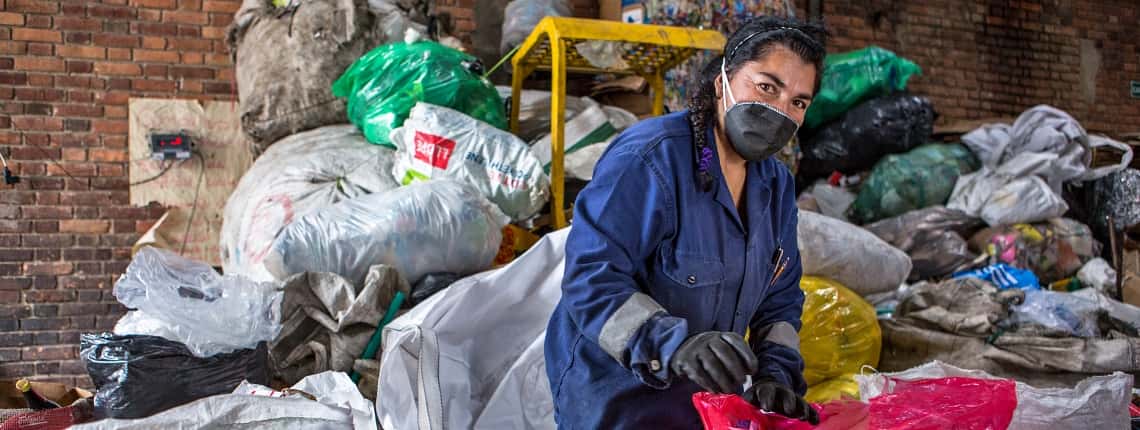Impacts of the COVID-19 crisis on employment: (potential) solutions for informal/ self-employed workers
-
April 21, 2020
- Online @socialprotection.org

WIEGO’s Laura Alfers, Director of Social Protection, and Carmen Roca, Focal City Lima Coordinator, delivered a webinar about the COVID-19 crisis and informal workers. The conversation was moderated by Christina Behrendt, Head, Social Policy Unit, ILO.
For many of the world’s 2 billion informal workers, COVID-19 is a dual health and economic crisis. Many live and/or work in crowded public spaces with little or no access to water and sanitation, and have no access to health care. And in this pandemic, waste recyclers, street vendors and food servers, construction workers, transport workers, and domestic workers are particularly at risk of infection.
Not working is no option. Those working in the informal economy depend on their daily earnings to survive—whether they are self-employed, wage workers, casual day labourers or dependent contractors—they face the risk of falling into extreme poverty as a result of government-ordered lockdowns.
But unlike formal sector employees, informal economy workers are often not covered – or insufficiently covered – by social protection measures, resulting in limited access to health-care services and no income replacement if they stop working.
Couldn’t make it? The discussion was filmed and will be shared at a later date here and on WIEGO’s YouTube channel.
Women in Informal Employment: Globalizing and Organizing, WIEGO
International Labour Organization, ILO
International Policy Centre for Inclusive Growth (IPC-IG)
Deutsche Gesellschaft für Internationale Zusammenarbeit, GIZ